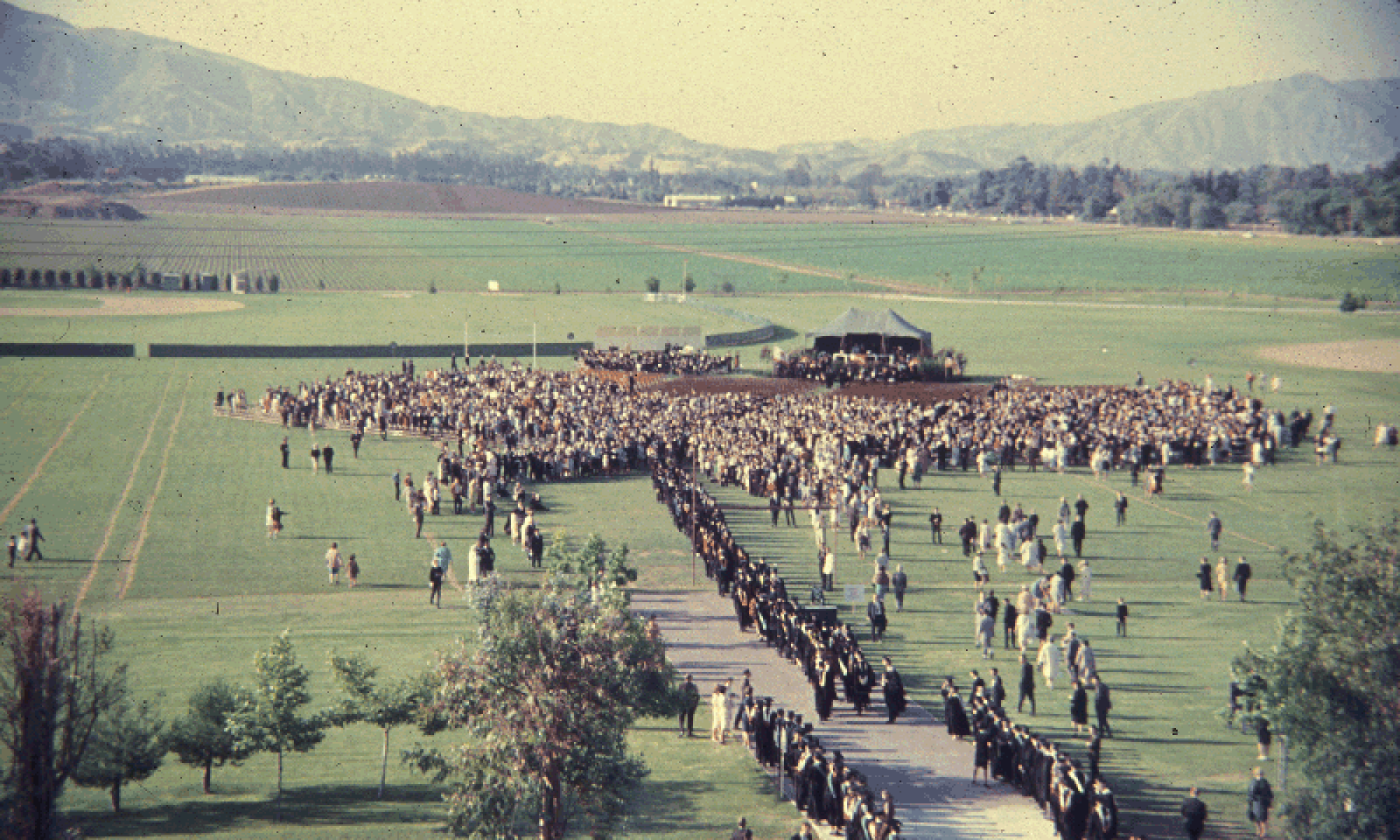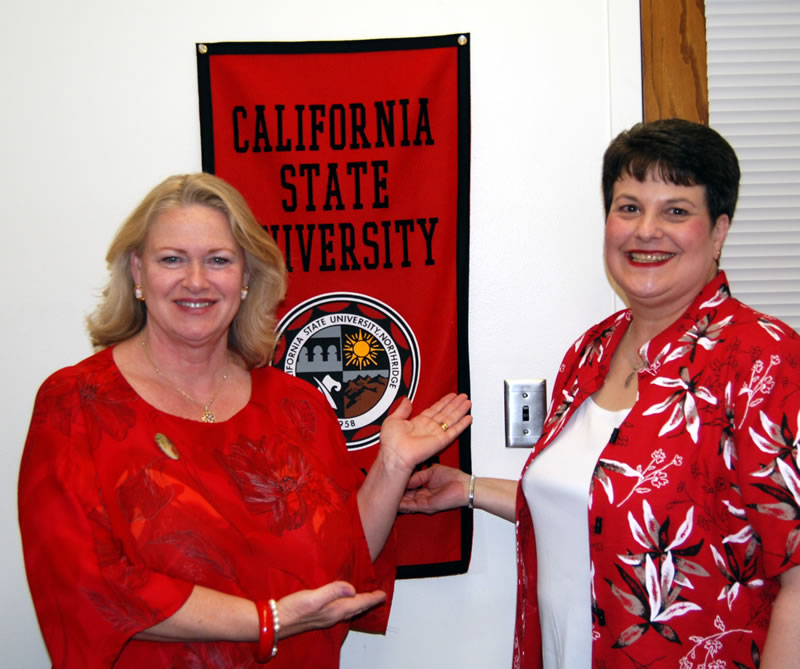Sue: Granny, Dorothea Heitz, that the volunteer award is now named after her, that is given to every deserving student every year. She started back in the 60s as a 53- year-old woman to earn her degree. She noticed that there was a lack of school spirit, so she formed the Granny Girls as a result of all the girls who were trying out for cheerleading and didn’t make it, and where did they go with all that school spirit? So with all that energy she had, she created this wonderful, friendly, great service organization called the Granny Girls. Both of us were part of it for a number of years, and it was during the time when school apathy was at its height — the Vietnam war, a lot of protesting — and yet we still wanted to participate in school activities.
Mary: Right, it was a very difficult time to be in school. It was hard. Because a lot of us had come from far away. We didn’t have any family here. Some of us, like myself, I had come from a small junior college and came down here and here was this huge school. From my junior college it was 1500, and here I came to this campus and basically it was a commuter school– 33,000, And I was lost, and it was like, oh my gosh, I have no family, I hardly knew anybody here. And then here was Granny and here were the Granny Girls, and it helped me have a sense of belonging, and then I had this whole family of Granny Girls and Granny that helped me belong. Granny really fostered women going to school and women being in service, and the whole school spirit and everything. That really helped us foster the Matador pride and the Matador spirit of Northridge. It made a world of difference — not just here at school, but in our whole lives. Granny, she was just incredible. She was just a really dynamic, vivacious, incredible woman.
There were a lot of different things that we did. We did service. We would hand out cookies. Granny had us do routines. We had dresses: the dresses were mini-dresses, but then we wore long skirts and we had the black fishnet nylons, and at the end of our routines then we would take off the long skirts and here were the mini-dresses, and of course that was a just a great hit.
Sue: We were at the Temporary Union Building, which was called the TUB, and to come back years later to see this wonderful Student Union that’s now here on campus when it was just a small bungalow. We supported all the sports events. The Granny Girls were at the last football game that was held here at CSUN, and that was sad. You know, we have to move with the times, but that was the closing of a chapter in our lives.
Mary: The TUB was a great place to go because they would put on screenings of the Marx Brothers films, and you’d see those advertised all over campus and in the Sundial. So you had something you could do, you had something you could go to. It was kind of odd when you would come here as a new student. I was living in Rincon Hall, that was the year that it had opened, and we played our football games at the horse racing track next door, which was Devonshire Downs, and I thought, ok this is different, this is going to be an interesting place with everything that was going on.

